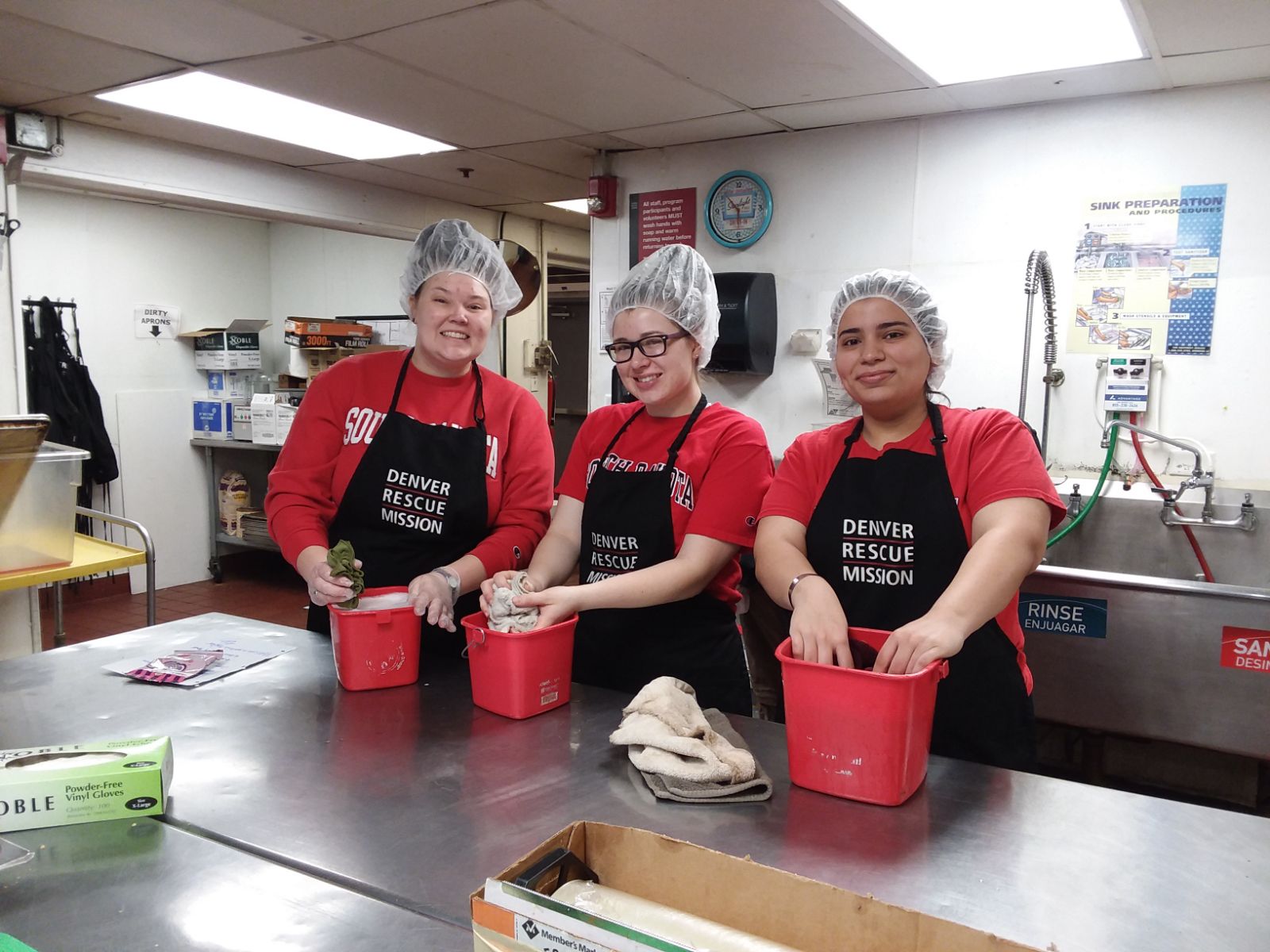
AWOL trips based on social issues rather than location
Alternative Week of Off-Campus Learning (AWOL) is a campus group focused on the alternative break movement. AWOL groups go to a community in need and provide service learning that will impact themselves and the community they visit.
However, the reasons can vary on why or why not a location makes an ideal service learning destination.
Kim Albracht, AWOL advisor, said the alternative break movement was intended to give students a way to find more meaningful experiences than a traditional spring break trip.
Albracht said the process for choosing a location depends on a variety of factors.
“A lot of what helps us is understanding our student population and what social issues they are concerned about and also finding community partners that are able to welcome a group of short-term volunteers,” Albracht said.
Brooklyn Stekl, a sophomore elementary education major, went on an alternative break to Nashville, Tenn. because she is passionate about aiding the homeless, she said.
“I went on a mission trip in high school to San Diego to deal with homelessness. It is something I want to change,” Stekl said. “We met with homeless people and they talked to us about how to act when you see homeless people in the street— don’t avoid eye contact with them. They are human and you can’t treat them as if they aren’t,” she said.
Albracht said finding locations can sometimes be tricky because AWOL has such specific criteria.
“We are very specific because we have to be there for a week, we want to put in 30-35 hours of direct service, we have to be able to do that on short term with 10-12 volunteers,” she said.
However, Albracht said organizations are beginning to catch on to the alternative break movement and welcome service-learning groups.
“Those types of groups are really great for us to work with because they understand our mission and our purpose,” she said.
AWOL president Luke Smith said the process for location picking has changed in recent years.
“In the past, the executive board would select them, but this year we decided to have the site leaders propose a potential location to be approved by the board. We want to give site leaders more ownership over their alternative break,” Smith said.
The most important part of an AWOL trip is not the location, but the social issue.
“Before selecting locations though, we select the social issues we want AWOL to focus on for the upcoming year. Some of our social issues remain the same year-by-year, but we try to introduce a few different issues each year,” he said,
Smith said the locations they choose aren’t always based on which communities need help most.
“I would say the communities we enter have identified their own needs and are working to meet them through community-based effort,” he said. “We simply contact the organizations that relate to the social issue we are focusing on, assist them in their efforts.”
Environmental impact and urban poverty are two big issues AWOL considers. New Orleans is a frequent location due to damages left behind by Hurricane Katrina.
“They are losing wetlands at an incredible rate and so this is a really good area to go to learn about environmental impact,” Albracht said.
Urban poverty is an issue that affects most big cities, but this year AWOL chose to visit Albuquerque, NM.
“The rate of unemployment in New Mexico is very high, so it’s an area with a lot of community partners who provide services for their community to grow,” she said.
AWOL promotes the idea of active citizenship and bringing back what they learn on these alternative breaks to their own communities.
“Our goal is that we can learn from what other communities are doing to alleviate social issues they have identified in their area and bring back this knowledge, experience and training to our own communities,” Smith said.


